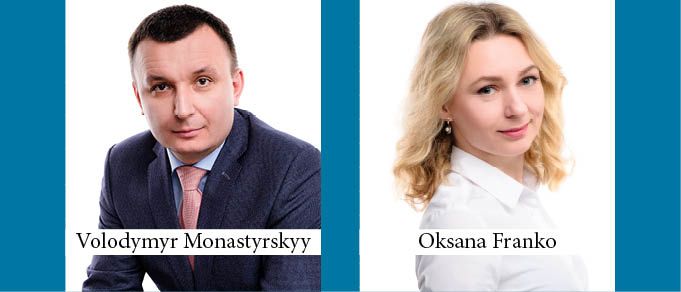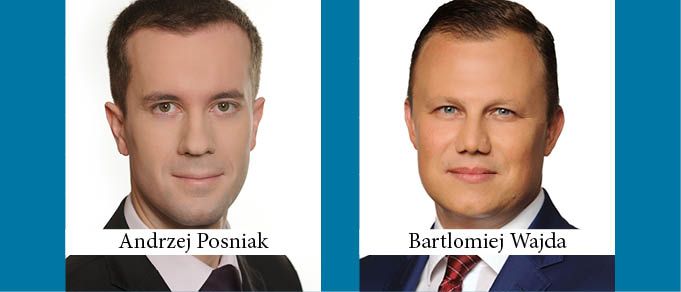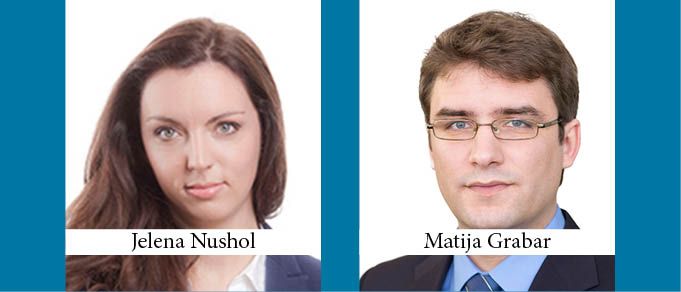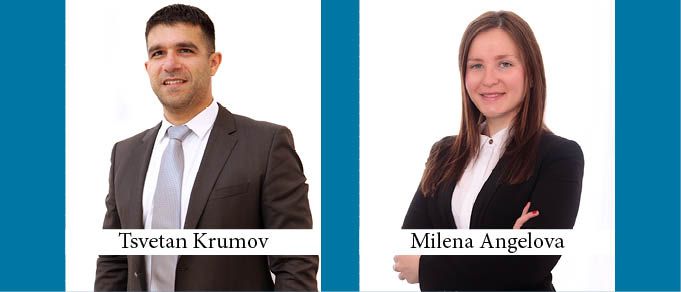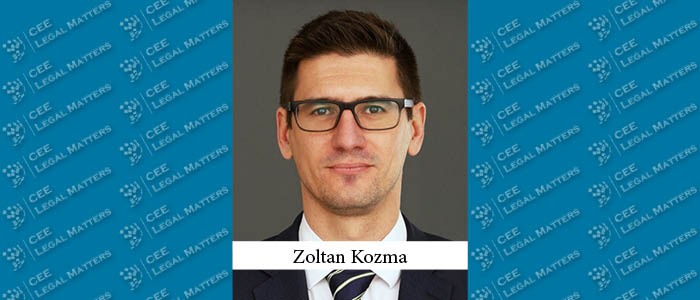In its most recent annual report, the Czech Competition Authority stated that the investigation of bid-rigging cartels would be its highest priority. The issue of bid rigging is a hot topic that has attracted the attention not only of the CCA, but also that of the Czech police and public prosecutors, who have been very active in investigating bid-rigging cartels in recent years.
Draft Communication on Commitments in Competition Cases
The Hungarian Competition Authority has launched the public consultation process about the draft of its updated and amended communication concerning commitment decisions in Hungarian competition cases.
Dawn Raid Tips
The Ukrainian competition authority focuses on investigating the status of competition in different markets in Ukraine. They are empowered to do this either by sending written requests to companies or by performing on-site inspections (e.g., dawn raids).
The Romanian Competition Council’s Improved Investigation Tool: Forensic Examinations
Over the past years, Romania has excelled in antitrust law enforcement as the Romanian Competition Council boasts stellar appraisals both inside the country and at the EU level.
New Law on Competition: What Has Changed for Foreign Companies in the Belarusian Market?
As part of comprehensive change in the Belarusian legal sphere, a new edition of the country’s “On Contradiction of Monopolistic Activity and Development of Competition” law (the “Competition Law”) entered into force on August 3, 2018. The Competition Law sets out new rules designed to ensure conditions for fair competition and to create new markets and enable their development apply to Belarusian and foreign companies doing business in Belarus.
Russian Competition Law and Sanctions
Foreign sanctions are forcing international companies to carefully evaluate their contractual relationships with Russian counterparties. In this respect Russian competition law provides obstacles that may be difficult to over-come.
Amendments to Polish Transfer Pricing Regulations in 2017 and 2018
Significant changes have been made to Polish transfer pricing regulations in recent years. New legislation, adopted in 2017, introduced a three-tiered approach to transfer pricing documentation consisting of: (1) local file, (2) master file, and (3) country-by-country reporting. Poland was one of the first countries to introduce the changes recommended by the OECD in BEPS (Action 13).
The Record-Breaking Era of the Polish Real Estate Sector
The commercial real estate market in Poland continues to be on a growth path. In 2017, the market recorded high demand in all major asset classes, breaking records in the hotel and warehouse sectors. The total value of transactions is growing consistently, and in 2017 it reached EUR 5.1 billion – the highest level in the history of the Polish market.
Marketing Law Firm Marketing: The Biggest Difference
The news that many of the legal markets in CEE impose stricter rules on law firm advertising and marketing than many of their Western counterparts comes as no surprise. Still, to explore this concept just a bit, for this issue, we asked law firm marketing and BD experts around CEE: “What, in your opinion, is the biggest difference between law firm marketing in your market and law firm marketing in London or New York?
Guest Editorial: What a Wonderful Profession
I love my profession. It has given me the privilege of being a witness to and an active participant in the significant changes which have unfolded in Poland over the last 30 years. I graduated in 1985 when the Polish economy was socialist. Nothing at that time could lead one to realistically expect that the socialist regime would fall in a few years, with Poland becoming a free country. When I went to study in Oxford in 1988, I left a socialist Poland, only to return to a Poland already on its path to a free market economy.
Saving the Snitch: Increasing Whistle-Blower Protection in Poland
Against the backdrop of the many significant and at times highly controversial changes being made to Polish law at the moment, the country is close to enacting its first ever serious whistleblower protection laws. What will this protection look like, and what does its passage mean for Poland?
Guest Editorial: The Future is Now
Ever since “legal tech” became a thing, lawyers have been dreadfully anticipating the time when technology will disrupt the legal profession. The media has been fuelling lawyer worries, and attention-grabbing headlines like “The robot lawyers are here – and they are winning” or “Lawyers could be replaced by artificial intelligence” have kept lawyers awake at night. Artificial intelligence (AI) and machine learning in law has become the talk of the town, and for good reason, as the use of legal technology helps lawyers to get things done more efficiently and cost-effectively. Thus, it does not come as a surprise that legal tech start-ups are becoming the Starbucks of the legal profession – they are popping up on every corner. It is estimated that there are over 1000 legal tech start-ups worldwide and that the legal tech industry is worth USD 15.9 billion globally.
Financing Options Under the Croatian Bankruptcy Act
Companies in financial difficulties are regularly faced with challenges in seeking fresh financing – an injection necessary for financial consolidation and to overcome financial difficulties. Such challenges become even greater when a company formally enters pre-bankruptcy or bankruptcy proceedings. In a large number of cases, the companies are in such difficult and irreversible circumstances that potential creditors are usually discouraged from providing new financing, which is sought by the companies unable to provide any indication of success. However, there are situations in which creditors may be willing to provide fresh capital despite the debtor’s difficult situation – most commonly, because they already have an outstanding exposure against the debtor. Existing creditors considering new financing may see an opportunity to exit the existing creditor-debtor relationship less “harmed.” In such cases, the main questions involve the position the creditors can obtain by granting fresh financing and whether the legislative framework regulating pre-bankruptcy proceedings is sufficiently sensitized to their specific position.
Bosnia and Herzegovina’s Factoring Market: Trick or Treat?
Bosnia and Herzegovina (BiH) consists of two distinct administrative entities – the Federation of BiH (FBiH) and Republika Srpska (RS) – and the special administrative unit Brcko District of BiH (BD). In accordance with the constitutional division of competences, factoring activities – a type of debtor finance in which a business sells its accounts receivable (i.e., invoices) to a third party (called a factor) at a discount – fall under the competence of individual parts, resulting in several sets of legislation but two regulators: the Federal Banking Agency (FBA) in FBiH and the Banking Agency in Republika Srpska (BARS), with BD able to choose either of the two.
Case Law Developments Around Real Estate Financing
The Supreme Court of Bulgaria has clarified important aspects of enforcement over real estate assets that form part of an enterprise pledge.
Distance Contracts: The Paperless Solution
At a global scale, trends in the financial sector are undoubtedly oriented towards digitalization. By employing new technologies, financial institutions are striving to meet clients’ surging demand for contracting financial services via digital channels. In other words, the spotlight is turning from branch-proximity to digital-technology, as the use of paper-based documentation and the need for clients to be present in person when contracting financial services are shrinking.
The Hungarian National Bank Seeks to Cool Down Over-Heated Real Estate Market
Guidance No. 12/2018 (II.27) of the Hungarian National Bank entered into effect on July 1, 2018 (the “Guidance”). Although the Guidance is non-binding, financial institutions are expected to comply with its provisions. In this article, we provide a list of the most important points of the Guidance and predict market reactions based on our ongoing mandates and information obtained from our clients.
How to Become a Qualifying Shareholder in a “Euro” Bank: A Regulatory Point of View
A “qualifying shareholder” is any person intending to acquire or increase his or her bank shares in order to achieve or exceed a qualifying holding. The qualifying shareholder must be authorized by the European banking supervisor, the European Central Bank. Such authorization is first needed upon the acquisition of ten percent or more of the shares and/or voting rights in a bank. Subsequent authorizations are required when acquisitions of twenty, thirty, and/or fifty percent of the shares and/or voting rights in the bank are made. Importantly, the authorization procedure is activated not only upon the crossing of the relevant thresholds but also when the acquirer obtains the right to appoint the majority of the management board or any other means of exerting a significant influence on the bank’s management.



